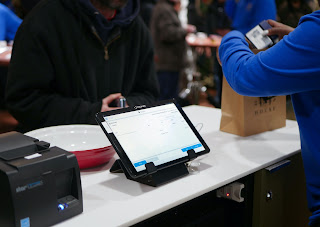What is a healthcare management system?
A healthcare management system is a software application designed to manage and optimize various aspects of healthcare operations. These systems are typically used by healthcare organizations, such as hospitals, clinics, and medical practices, to streamline administrative tasks, improve patient care, and manage medical records and other data.
- Healthcare management systems typically include a range of modules that are designed to manage different aspects of healthcare operations, such as:
- Electronic Medical Records (EMR) - a digital record of a patient's medical history, diagnoses, medications, and treatments.
- Patient Management - a module that manages patient appointments, scheduling, and billing.
- Clinical Decision Support - a module that provides real-time clinical information and alerts to healthcare providers to help them make informed decisions.
- Billing and Insurance - a module that manages insurance claims, billing, and reimbursement.
- Inventory Management - a module that manages medical supplies and equipment, including tracking inventory levels and ordering new supplies when needed.
- Reporting and Analytics - a module that provides data and insights to help healthcare organizations make data-driven decisions.
Healthcare management systems are designed to improve the efficiency and effectiveness of healthcare operations, reduce administrative burdens, and enhance the patient experience. By using a healthcare management system, healthcare organizations can improve patient outcomes, reduce costs, and provide better overall care to patients.
What is a POS management system for hospitals?
POS (Point of Sale) software is a computer application that is used to manage sales transactions in retail, hospitality, and other industries.
Point of the Sale management system is software system that enables hospitals to manage their transactions and billing processes more efficiently. Specifically, a POS management system for hospitals includes features that are designed to manage patient transactions, inventory, and billing.
The POS system allows hospitals to track inventory and supplies in real time, which helps them to optimize their supply chain and reduce waste. It also enables healthcare providers to accurately track patient bills, process payments, and generate invoices.
Some key features of a POS management system for hospitals may include:
- Inventory management: tracking of hospital supplies, medical equipment, and medication in real-time.
- Billing management: generating patient invoices, processing payments, and tracking outstanding bills.
- Reporting: generating reports on inventory levels, sales trends, and patient billing.
- Integration with EMR (Electronic Medical Records) system: The POS system can integrate with EMR automatically populate patient billing data.
- Security: A POS management system must meet HIPAA (Health Insurance Portability and Accountability Act) requirements and other security standards to ensure patient data protection.
- A well-designed POS management system can help hospitals to streamline their operations, reduce costs, and provide better care for their patients.
- Streamlined processes: POS software can automate many processes in hospitals, including patient registration, appointment scheduling, billing, and inventory management. This can save time and reduce errors, leading to a more efficient and cost-effective operation.
- Improved patient experience: With POS software, hospitals can offer patients a more convenient and personalized experience. For example, patients can make appointments online, check in using self-service kiosks, and receive real-time updates on their care.
- Better financial management: POS software can help hospitals manage their finances more effectively. With automated billing and invoicing, hospitals can reduce the risk of errors and ensure that payments are processed in a timely manner.
- Enhanced inventory control: Hospitals often have complex inventory management needs, including tracking medical supplies, pharmaceuticals, and equipment. POS software can help hospitals to monitor their inventory levels in real-time, track expiration dates, and automate the reordering process.
- Data analytics: POS software can provide hospitals with valuable data and insights that can be used to improve patient care and operational efficiency. By analyzing data on patient demographics, treatment outcomes, and resource utilization, hospitals can identify areas for improvement and make data-driven decisions.


.png)

0 Comments